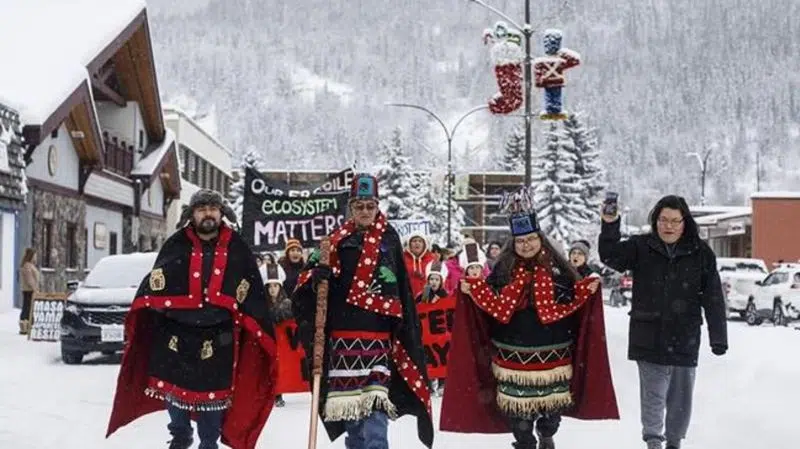
RCMP pipeline checkpoint ‘arbitrary and discriminatory,’ say complainants
VANCOUVER — The Wet’suwet’en hereditary clan chiefs and their supporters want a public investigation into the way the RCMP are controlling access along a rural road in northern British Columbia.
The RCMP have said they set up a checkpoint along the Morice Forest Service Road south of Houston in order to prevent a dispute over the Coastal GasLink pipeline from escalating.
But the chiefs along with the B.C. Civil Liberties Association and the Union of B.C. Indian Chiefs allege that the Mounties are unlawfully restricting access on Wet’suwet’en traditional territory.
They have submitted a complaint to the Civilian Review and Complaints Commission for the RCMP, asking the chairperson to initiate a policy complaint and public interest investigation.


